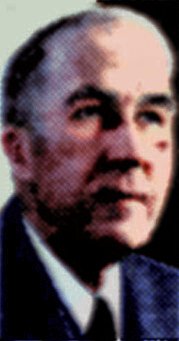The Pittsburgh Press (February 12, 1946)

Simms: Rio conference
By William Philip Simms
WASHINGTON – Unless the Fascist-minded Col. Juan Peron is repudiated at the polls a week from Sunday, and a democratic government is elected in Argentina, the United States may find itself in a somewhat delicate position at the coming Inter-American Conference at Rio de Janeiro.
To understand why, a little recent history may be useful. Originally the Rio meeting was slated for October 20. On October 3, however, acting Secretary of State Dean Acheson – Secretary Byrnes was in London – denounced Argentina for ignoring and repudiating her international obligations, and stated that the United States refused to be associated with her in a mutual defense pact for the western hemisphere.
Said Mr. Acheson: “In view of recent developments in Argentina, the United States does not feel that it can properly negotiate or sign with the present Argentine regime a treaty of military assistance.”
But, he added, “since the conference is exclusively for the purpose of negotiating such a treaty, this government has communicated with the host government (Brazil) … suggesting that the conference be postponed, but emphasizing that in view of the great importance which this government attaches to the negotiation of such a treaty, it has urged that negotiations proceed as rapidly as possible to the end of concluding and signing such a treaty at the earliest possible moment.”
Unfortunately, Col. Peron now seems to have Argentina in his grip more firmly than ever. He is running for the presidency. The elections are set for February 24. Opinion in Buenos Aires is that while the Argentine people are overwhelming democratic, the colonel seems likely to win. Behind him he has the police, an important segment of the army and certain strategic labor unions, including those in transport and utilities. With their strong-arm backing he may be able to control the nation.
Also that the conference “is exclusively for the purpose of negotiating such a treaty.” Such being the case, the United States and the rest of the American republics either will have to ostracize Argentina at Rio or forego the only business before the meeting.
For these and other reasons – including the proximity of the first peace conference called for not later than May 1 – some Latin American capitals have suggested another postponement. Many fear for hemispheric unity if matters are pressed at this time, and the unity of the Americas, in their opinion, has become the new world’s most priceless asset. Among those who share this view are some who detest Peron’s methods most.
The State Department’s position, in view of these developments, is somewhat puzzling. While it is openly hostile to the Peron dictatorship, it is officially pledged not to act alone. This would indicate that since October 3 – when Mr. Acheson said the United States could neither negotiate nor sign a military assistance pact with Argentina – the American sisterhood had agreed on some joint plan of action at Rio which would isolate or ignore the present government at Buenos Aires. Or that it has inside information that Peron is about to be overthrown.